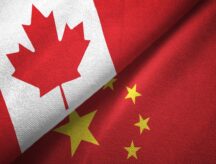Canada adds more countries to travel ban list over Omicron variant concerns
On November 30, the Canadian government announced several more countries have been added to the list of those currently subject to stricter border measures.
The countries added to the list are Nigeria, Egypt, and Malawi. They join a list of seven southern African countries that had restrictive measures imposed on them this past Friday.
The 10 affected countries are:
- Botswana
- Egypt;
- Eswatini;
- Lesotho;
- Malawi;
- Mozambique;
- Namibia;
- Nigeria;
- South Africa; and
- Zimbabwe.
Discover if You’re Eligible for Canadian Immigration
Foreign nationals who have travelled to these countries over the last 14 days will be forbidden from entering Canada. Canadian citizens and permanent residents that have been in any of these countries over the last 14 days will need to receive a negative PCR test in a third country before being allowed to travel to Canada, even if they are fully vaccinated.
Upon arrival to Canada, all Canadians who have been to these countries will have to complete a COVID-19 test. They will also have to quarantine for 14 days, and complete a test on day 8.
Travellers arriving by air will need to stay in a designated quarantine facility while they wait on their arrival test results. They will be allowed to leave once their test results come back negative.
Those arriving by land may be allowed to go directly to the quarantine location named on their quarantine plan. If they do not have a suitable quarantine plan, they will have to go to a designated quarantine facility.
In a media release, the government says there will be increased scrutiny of quarantine plans for travellers from these countries and rigorous monitoring to ensure travellers are complying with quarantine measures.
Health Canada will be contacting travellers who have entered Canada from these countries in the past two weeks to tell them they need to get tested and quarantine while they wait on their results.
Travellers from all other countries
All air travellers (except those coming from the U.S.), irrespective of their Canadian immigration and vaccination status, will need to undergo testing at the airport in which they land in Canada. They will need to self isolate until a negative test has been confirmed. This is in addition to the pre-arrival PCR tests that they need to get within 72 hours of travel to Canada.
These new measures also apply to Canadian citizens and permanent residents, even those that are fully vaccinated. Canadian government ministers said during a press conference they will give further consideration to potentially adding these requirement to travellers entering Canada from the U.S. by air and/or land.
As of November 30, vaccination is required for travel within and outside of Canada. Officials will no longer accept a valid COVID-19 molecular test as an alternative to vaccination unless travellers are exempt due to a medical inability to get vaccinated.
Canadian citizens and permanent residents who depart and re-enter Canada within 72 hours do not have to provide a pre-entry molecular test result.
All travellers must still submit their travel documents to the ArriveCAN app on their phones, or on the website.
Omicron in Canada
The stricter measures come after a new variant of COVID-19, Omicron, was discovered last week in South Africa and is causing concern around the world.
The World Health Organization describes the Omicron variant of the coronavirus as "very high risk" globally and the likelihood of it spreading around the world as significant.
It is currently unknown how contagious the variant is, how dangerous or whether or not it is resistant to vaccines.
As of November 30, seven cases of the Omicron COVID-19 variant have been confirmed in Canada and several other possible cases are under investigation.
Discover if You’re Eligible for Canadian Immigration
© CIC News All Rights Reserved. Visit CanadaVisa.com to discover your Canadian immigration options.
- Do you need Canadian immigration assistance? Contact the Contact Cohen Immigration Law firm by completing our form
- Send us your feedback or your non-legal assistance questions by emailing us at media@canadavisa.com







